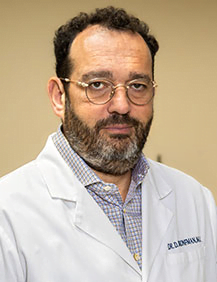The Only NYS Approved by
DOH Surgical Facility
*Same Day Appointments & Walk-Ins Welcome
The Only NYS Approved by
DOH Surgical Facility
*Same Day Appointments & Walk-Ins Welcome

Miscarriage is the spontaneous loss of pregnancy before the 20th week. Usually it occurs because of fetal development problems. However, in some cases miscarriage results from different health conditions of the mother, like for example diabetes and especially uncontrolled and high levels of sugar in the blood, hormonal changes, incompetent cervix or anomalies of the uterus. Often, the real cause of miscarriage is not known.
In general, 10-20% of pregnancies end in miscarriage. However, the real number of miscarriages is much higher, because in many cases the miscarriage occurs very early in pregnancy, when the woman doesn’t even know that she is pregnant.
But, is it possible to get pregnant again after the miscarriage? When should I get pregnant again? Will I have problems or even miscarriage in this second pregnancy? What if I miscarry again? These are some of the things that usually concern woman who have undergone a miscarriage once. Just the idea of getting pregnant again can be very stressful. You might be feeling confused, anxious and scared of getting pregnant again. Even, if you do achieve to conceive again there is always the fear that something might go wrong.
According to the statistics miscarriage is usually a one-time occurrence and that most of the woman get pregnant and give birth to healthy babies. Just in only 1% of the cases woman have three or more miscarriages in a row. Less than 5% of woman, have two miscarriages in a row.
If you had more than one miscarriage in a row, you should seek medical help and consult your health care provider. Further test and check-ups should be performed, like for example blood tests, ultrasound, hysteroscopy, hysterosalpingography, chromosomal tests, etc.
Pregnancies can occur even in the first menstrual cycle after the miscarriage. However, health care providers recommend a waiting period of 6 months and up to one year. This all depends from you and your partner, but also from the cause of the miscarriage. If, for example the cause of miscarriage is a molar pregnancy the waiting period should be at least one year.
The best idea is to give you and your partner some time. Physical recovery usually takes just a couple of days, while emotional recovery needs some time. If there were medical complications with your miscarriage, seek medical help. Talk to your health care provider for any concern that you might have. The more information you have the better it is. You will feel prepared and ready for another pregnancy. Only you and your partner as a couple can decide when you should try it again.
However, there are some things that you can do to increase the chances of getting pregnant, having a normal pregnancy and giving birth to a healthy child. Start by leading a healthy life. Eat healthy food like fresh fruits, vegetables, whole grains and avoid drinking coffee and alcohol. Also avoid smoking and illegal drugs. Maintain e healthy weight and include physical activity in your daily routine. Avoid stress as much as you can. Keep under control any chronic health conditions you might have, like high blood pressure or diabetes. Take daily vitamin supplements and especially folic acid. (Folic acid is recommended couple of months before getting pregnant in order to reduce the chances of neural tube developments, like spina bifida).
The most important thing is to take some time and process the loss you had. Take some time before you and your partner decide to have another baby. If there are any medical problems try to solve them before getting pregnant again. Lead a normal and healthy life in order to increase the chances of getting pregnant again and having a normal pregnancy. Most of the woman who had a miscarriage give birth to normally healthy children.

Dmitry Bronfman, MD, is a board-certified gynecologist who specializes in all aspects of contemporary women’s health, preventive medicine, pelvic pain, minimally invasive and robotic surgery, and general, adolescent, and menopausal gynecology.
Brooklyn Abortion Clinic